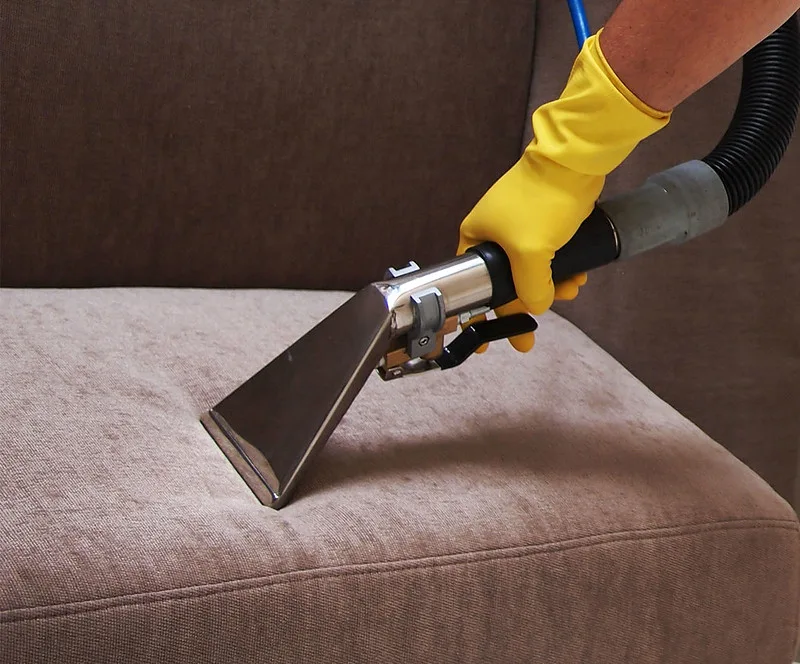Table of Contents Show
In the world of tenancy, where pounds and pence hold dominion, the question of your security deposit’s fate looms large. The cleanliness of your departure theatre, the rented property, bears a significant role in whether your financial companion stays with you or departs for good.
The choices are stark – shall you embark on the cleansing journey yourself, or shall you summon the professional cleaners to chart this course? This narrative explores the merits and perils of both avenues, all while keeping the quintessential end of tenancy cleaning in focus.
The DIY Approach

Advantages of DIY Cleaning
The DIY Approach to end-of-tenancy cleaning has gained popularity among tenants seeking autonomy and cost-effectiveness. Driven by a desire to maintain strict control over expenses, many individuals venture into the hands-on involvement of the cleaning process. This approach is not merely a chore but a journey of self-reliance, with the belief that personal efforts can satisfactorily restore the rental property.
Key Advantages:
- Cost Savings: One of the most compelling reasons tenants choose DIY cleaning is to save money. Professional cleaning services can be expensive, making DIY an attractive option for those on a tight budget.
- Control Over Process: DIY cleaning allows you to manage every aspect of the cleaning process, ensuring that no corner is overlooked according to your standards.
- Flexible Scheduling: You can clean at your own pace and convenience, which can be particularly beneficial if you’re juggling multiple tasks during your move-out period.
- Satisfaction of Self-Accomplishment: Completing the task yourself can provide a sense of achievement and satisfaction, knowing that you have restored the property through your own efforts.
Challenges of DIY Cleaning
However, the DIY route is not devoid of challenges. The meticulous nature of end-of-tenancy cleaning transforms the task into a time-consuming endeavor, standing as a physical trial amid the already demanding process of relocation.
Notable Challenges:
- Time-Consuming: Thoroughly cleaning an entire property can take several hours or even days. This is particularly challenging when balancing other moving-related tasks.
- Physical Demands: The physical exertion required for deep cleaning tasks – such as scrubbing floors, cleaning carpets, and reaching high places – can be exhausting.
- Specialized Knowledge and Tools: Certain areas may require specialized knowledge or tools that aren’t typically found in household cleaning supplies, such as specific carpet cleaners or heavy-duty degreasers for kitchens.
- Risk of Oversights: The risk of oversights, especially those concealed beneath surfaces or in hard-to-reach areas, poses a potential threat to the return of the security deposit. Missing these spots could lead to deductions from your deposit by landlords or letting agents.
- Stress Factor: The added pressure to meet high cleanliness standards while dealing with other moving logistics can add significant stress.
By weighing these advantages and challenges, tenants can make an informed decision on whether to embark on this self-reliant path or seek professional assistance.
Using Professional End-Of-Tenancy

Benefits of Professional Cleaning Services
In contrast, hiring professional end-of-tenancy cleaning services provides distinct advantages. Cleaning experts bring a level of understanding and precision, ensuring cleanliness standards meet the stringent expectations of landlords and letting agents.
Expertise and Precision
Professional cleaners possess extensive knowledge of what constitutes a thorough cleaning. This expertise translates into:
- Attention to Detail: Professionals meticulously clean areas that are often overlooked in DIY efforts.
- Quality Assurance: Their experience ensures that all aspects of the property meet or exceed the cleanliness standards required for deposit returns.
Specialized Tools and Products
Their expertise, coupled with a specialized arsenal of cleaning tools, often surpasses the results achievable through a DIY approach, introducing bursts of efficiency and excellence. Some examples include:
- Industrial-Grade Equipment: From high-powered vacuum cleaners to steam carpet cleaners, these tools deliver superior results.
- Eco-Friendly Products: Many professional services use environmentally friendly cleaning agents that are both effective and safe.
Overcoming Specific Challenges
Professional cleaners excel in overcoming specific challenges, effortlessly erasing stains from carpets, conquering limescale in bathrooms, and defeating stubborn grime on various surfaces. Their proficiency includes:
- Stain Removal: Advanced techniques for removing tough stains without damaging fabric or surfaces.
- Deep Cleaning: Effective methods for eliminating deep-seated dirt and grime in kitchens, bathrooms, and other high-use areas.
“Their proficiency in navigating the intricacies of end-of-tenancy cleaning contributes to a higher likelihood of securing the full return of the deposit.”
Time Efficiency
Hiring professionals also saves valuable time. While moving is inherently time-consuming, outsourcing cleaning allows you to focus on other critical tasks. Benefits include:
- Quick Turnaround: Teams can complete a comprehensive clean faster than an individual could.
- Convenience: Scheduling flexibility to fit your moving timeline.
Added Confidence
The assurance that comes with professional cleaning services adds bursts of confidence to the decision-making process:
- Increased Deposit Return Chances: A professionally cleaned property is more likely to pass final inspections.
- Stress Reduction: Knowing that experts are handling the cleaning can significantly reduce moving-related stress.
By incorporating these benefits into your decision-making process, you can better determine whether professional end-of-tenancy cleaning services align with your needs and circumstances.
Limitations Of Professional Cleaning Services
Nevertheless, opting for professional services is not without its limitations. The financial cost may not always align with the budget constraints of tenants. Professional cleaning services can be expensive, and the price varies depending on the size of the property and the extent of the cleaning required. For many tenants, this added expense could strain their finances, especially after already incurring moving-related costs such as moving trucks, packing materials, and potential new home deposits.
Additionally, scheduling and coordinating with external cleaners can introduce complexities into the overall moving process:
- Timing Conflicts: Aligning your move-out date with the availability of professional cleaners can be challenging. Cleaners may not be available on short notice, or their schedule might not match yours, leading to potential delays.
- Coordination Issues: Effective communication and coordination are essential to ensure that cleaners arrive at the right time and perform the necessary tasks to meet landlord expectations. Miscommunications can lead to incomplete jobs or repeated visits, adding to the stress.
- Potentially disrupting the tenant’s timeline and plans: These scheduling and coordination issues can disrupt the tenant’s timeline and plans, making an already hectic moving process even more chaotic. They may have to adjust their schedule, potentially delaying their move-out or move-in date, which can be inconvenient and stressful.
- Reliability and Quality Concerns: While professional cleaning services generally strive for excellence, there is always a risk of subpar service. Not all cleaners meet the same standards of thoroughness and attention to detail. This could lead to unsatisfactory results, requiring tenants to either accept a less-than-ideal cleaning job or invest additional time and effort in rectifying it themselves.
Considering these potential drawbacks, some tenants may choose to forgo professional cleaning services and handle the task themselves. This allows them to save money and maintain full control over the process. However, undertaking end-of-tenancy cleaning independently has its own challenges and considerations.
“The best-laid plans often go awry.”
With moving being a time-sensitive activity, any delay or misstep can cascade into larger issues. For instance, if cleaners are delayed or do not meet standards initially, it might lead to additional negotiations with landlords or property managers about deposit deductions.
Thus, tenants are faced with the bursty dilemma of weighing the benefits of professional cleaning against:
- Associated Costs: Balancing affordability with necessity.
- Logistical Considerations: Managing timing and coordination effectively.
Before making their final decision, tenants must carefully evaluate whether professional end-of-tenancy cleaning services fit within their overall moving strategy and budget constraints.
Why Deposit Recovery Matters
The recovery of a tenancy deposit is crucial for tenants because it can significantly impact their housing options in the future. Understanding why deposit recovery matters requires recognizing its power to shape a tenant’s housing prospects and future trajectory.
The Significance of Deposit Recovery
- Financial Stakes: A tenancy deposit often represents a substantial amount of money for tenants, making its recovery important for their financial well-being.
- Tenancy History: The process of deposit recovery plays a role in defining a tenant’s rental history, which can influence their credibility and eligibility for future rentals.
The Role of End-of-Tenancy Cleaning
One particular aspect that heavily influences deposit recovery is the condition of the rental property at the end of the tenancy. Landlords and letting agents carefully assess the cleanliness of the property and any damages before deciding how much of the deposit to return.
Impact on Tenant:
- Full Deposit Return: If the property is clean and undamaged, tenants are more likely to receive their full deposit back, giving them financial security and a positive reference for future rentals.
- Deductions or Disputes: Insufficient cleaning or property damage can lead to deductions from the deposit or even disputes between tenants and landlords. This not only results in financial loss but also creates a negative mark on the tenant’s record, potentially affecting their chances of securing another rental property.
The Broader Narrative of Tenancy Journey
Deposit recovery goes beyond a simple financial transaction; it becomes an integral part of a tenant’s ongoing housing story. Here’s how:
- Financial Investment: Successful deposit recovery means getting back the money invested initially, providing tenants with resources for their next housing endeavor.
- Tenant-Landlord Relationship: A smooth deposit return fosters trust between tenants and landlords, paving the way for future positive interactions within the rental market.
- Future Housing Opportunities: A clean tenancy record, free from disputes or deductions, boosts a tenant’s reputation among landlords and increases their chances of securing future rental properties.
In summary, deposit recovery plays a significant role in a tenant’s housing journey:
- It impacts their financial stability,
- It shapes their tenancy history,
- It influences their relationship with landlords, and
- It determines their future housing opportunities.
Understanding the importance of deposit recovery empowers tenants to take proactive steps in ensuring a smooth transition from one rental property to another.
Common Reasons Landlords Keep Deposits
Landlords sometimes wield the deposit’s sword to recover losses. A lacklustre cleaning performance can provide them with reasons to retain portions of your deposit.
- Inadequate cleaning – Failing to meet the lofty standards of their cleanliness can give the landlord ample reason for deductions.
- Damage beyond wear and tear – Any damage that strays beyond the bounds of ordinary wear and tear can become a justifiable cause for reduced returns.
- Unpaid rent or bills – Outstanding debts, such as rent or unpaid utility bills, may siphon off from your deposit coffers.
In such scenarios, professional end-of-tenancy cleaning services become the knights in shining armour, bolstering your cause and aligning with rental standards.
Time-Saving Tips for DIY End-Of-Tenancy Cleaning
For those who dare to embark on the DIY cleaning odyssey, consider these time-saving secrets:
Craft a Meticulous Checklist
- A blueprint for your cleaning voyage will be your guiding star. This list should include every room and specific tasks within them, ensuring no corner is shrouded in darkness. Break down larger tasks into manageable steps, from dusting surfaces to deep cleaning carpets.
Laser Focus on Problem Zones
- Areas where limescale, mould, or stubborn grime clusters should be your priority. They are the dragons to slay. Pay special attention to bathrooms and kitchens—common hotspots for such issues. Use specialized cleaners for these areas to save time and effort.
Elevate Your Arsenal
- Invest in high-quality cleaning agents, the trusted companions for this cleaning expedition. Equip yourself with durable sponges, microfiber cloths, and powerful cleaning solutions that can cut through grime with ease. This not only speeds up the process but also ensures a thorough cleaning.
Rally Your Allies
- Should you have willing comrades rally them to your cause? Splitting the chores among friends or family can divide and conquer the workload efficiently. Assign specific tasks to each person based on their strengths to maximize productivity.
By integrating these strategies into your DIY end-of-tenancy cleaning routine, you’ll navigate the process more smoothly, save precious time, and increase your chances of reclaiming your full deposit.
Making the Decision
As you stand at the crossroads of choosing between DIY and using licensed end-of-tenancy cleaners, consider the tapestry of resources at your disposal, the constraints of time, and the unique demands of your rented domain.
Weighing Your Options
When deciding on a cleaning strategy, it’s essential to evaluate several factors:
- Resources Available: Assess the cleaning supplies you currently have. Can they meet professional standards, or will you need to invest in specialized products?
- Time Constraints: Determine how much time you can realistically dedicate to cleaning. DIY might save money but can be time-consuming.
- Unique Demands: Consider any specific requirements outlined in your tenancy agreement. Some landlords may have particular expectations that only professionals can meet.
Prioritizing Cleanliness Standards
Weigh the scales and prioritize the path that aligns with stringent cleanliness standards, orchestrating a seamless transition to the next chapter of your housing journey while safeguarding your security deposit. This decision should harmonize with:
- The intricate details of your circumstances
- The exacting standards are woven into the rental tapestry
In navigating this choice thoughtfully, you not only reclaim your financial investment but also set the stage for a positive tenancy record. This ensures:
- A smoother transition to future rentals
- Increased trust with future landlords
- A clean and welcoming environment for new tenants
By carefully considering these factors, you’ll make an informed decision that balances cost, effort, and peace of mind.
Conclusion
In conclusion, the decision to choose between professional cleaning services and a DIY approach hinges on several pivotal factors. By weighing these considerations carefully, you can make an informed choice that aligns with your unique needs and circumstances.
Key Takeaways
- Understanding Your Obligations: Scrutinize your tenancy agreement for any specific cleaning requirements. This ensures compliance and helps avoid any potential disputes with your landlord.
- Evaluating Time and Effort: Reflect on your schedule and energy levels. A professional service can save you significant time, particularly if you’re juggling multiple responsibilities during your move.
- Assessing Cleanliness Standards: Professional cleaners often adhere to higher cleanliness standards, which can be crucial if your landlord has exacting expectations.
- Financial Considerations: Although hiring professionals incurs costs, it might be a worthwhile investment to secure the return of your full security deposit.
Benefits of Professional Cleaning
Opting for professional cleaning services offers numerous advantages:
- Thoroughness: Professionals have the expertise and equipment to tackle even the most stubborn dirt and grime.
- Time Efficiency: Save valuable hours that can be redirected towards other moving tasks or setting up your new home.
- Peace of Mind: Ensure satisfaction knowing that cleanliness standards are met without compromising on quality.
Empower Your Decision
Making an informed choice empowers you to navigate the end-of-tenancy process smoothly while maintaining a positive rental history. Whether you decide on professional services or a DIY cleaning mission, prioritize clarity, efficiency, and adherence to high cleanliness standards for the best outcome.
Remember, this decision impacts not just your immediate move but also sets a precedent for future tenancies. Choose wisely to ensure a seamless transition and safeguard your financial interests.
FAQs (Frequently Asked Questions)
The DIY approach to end-of-tenancy cleaning offers cost savings, as tenants can avoid the expense of hiring professional cleaners.
One notable challenge of DIY cleaning is that it can be time-consuming, especially when thoroughly cleaning an entire property.
Professional cleaners possess expertise, precision, specialized tools, and products. They also excel in overcoming specific challenges and saving valuable time for tenants.
While professional services offer numerous advantages, they are not without limitations. It’s essential for tenants to weigh their options carefully before making a decision.
The recovery of a tenancy deposit is crucial for tenants because it often represents a substantial financial stake. The cleanliness of the property heavily influences deposit recovery.
Tenants should weigh their options carefully, prioritize cleanliness standards, and understand their obligations under the tenancy agreement. Making an informed choice empowers tenants to navigate the end-of-tenancy process effectively.











1 comment
Thank you for the advice! I am moving out next month and these tips are really helpful.